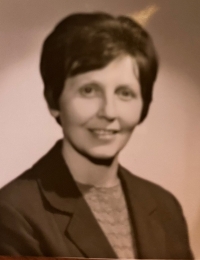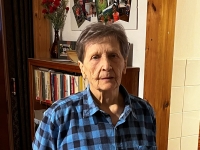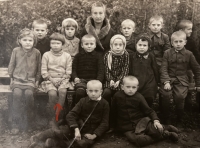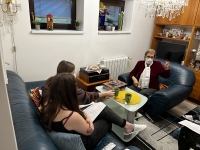Maybe my life could have been better, but I thank fate for the way I lived it

Stáhnout obrázek
Nina Burláková was born on April 3, 1938 in the village of Volkov in the Volhynia region in the territory of today‘s Ukraine. Her mother was originally Czech, while her father was Ukrainian. In Volkov in 1941, Nina experienced the beginning of the invasion of the Soviet Union by German troops. Nina and her family and other residents of Volkov repeatedly hid in dugouts in the nearby woods. In the first months of the war, her father Viktor died in battle. At that time, German soldiers occupied part of the house in which Nina lived. The family could therefore use only a few rooms. The soldiers killed almost all their livestock. Nina recalls that after the end of the conflict, the area was left in ruins – houses were burnt, fields destroyed and their well was full of corpses. In 1947, Nina went on a three-week trip to Czechoslovakia with her mother, sister and stepfather. Upon arrival, Nina completed the first grade and in 1948 attended the fourth grade. In 1953, she began studying a three-year course for teaching in kindergartens at the Pedagogical School in Litoměřice. Later, she worked in Jílové near Děčín, in Ludvíkovice and for five years she held the position of director in a nursery school in Děčín. After the wedding, she moved to Ústí nad Labem, where she experienced the invasion of Warsaw Pact troops. In 2022, she lived in Ústí nad Labem.



